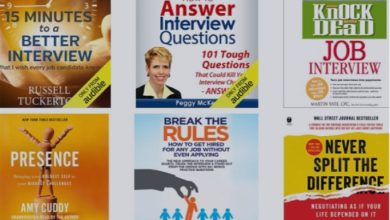Looking for a new job? Best 5 Tips to Land Your Dream

If you’re on the hunt for a new job, leveraging the right strategies can significantly increase your chances of getting hired. Here are five essential tips to enhance your job search and help you land your next role:

Table of Contents
Tailor Your Resume for new Job
Customize your resume for each job application. Highlight relevant experience and skills that match the job description, making it clear why you’re the perfect fit for the position.
When you’re on the quest for new job, tailoring your Resume is a critical step that can significantly elevate your chances of standing out. Each job application presents a unique opportunity to showcase how your skills, experiences, and achievements align with the specific requirements of the role you’re applying for. By customizing your Resume for each position, you highlight your most relevant qualifications and demonstrate to potential employers why you’re the ideal candidate. Jobs Hiring: Navigating the New Employment Landscape.
This approach involves carefully reading the job description, identifying key words and phrases, and reflecting these in your Resume. Moreover, adjusting your Resume to match the tone and priorities of the company can further prove your compatibility and dedication. Remember, a tailored Resume not only shows that you’ve done your homework but also greatly increases your visibility in a crowded job market. Resume Guide: Unlock Your Essay Writing Potential!
Leverage Your Network
Utilize your professional and personal networks. Often, job opportunities come from people you know. Don’t hesitate to reach out to your contacts to inform them of your job search and ask if they know of any opportunities.
In the journey to landing a new job, leveraging your network can be a game-changer. Your professional and personal connections can offer invaluable insights, recommend you for positions, or introduce you to key industry players. When using your network, ensure your Resume is updated and readily shareable. Inform your contacts about your job search, specifying the types of roles you’re interested in.
Engaging with your network can uncover opportunities that aren’t advertised publicly, giving you a competitive edge. Attend industry meetups, conferences, and other networking events to expand your connections. Remember, a strong network can significantly amplify your job search efforts, making it easier to find your next opportunity. Guide: How to Choose a Career You’ll Love
Enhance Your Online Presence
Make sure your LinkedIn profile is up to date and reflects your resume. Employers often check social media profiles, so a professional online presence can work in your favor.
In today’s digital age, considering a better opportunity often means ensuring your online presence is polished and professional, especially when on the hunt for position of employment. A strong online profile on platforms like LinkedIn can serve as your digital resume, showcasing your skills, accomplishments, and career interests to potential employers. Start by updating your profile with recent achievements, endorsements from colleagues, and a clear, professional photo.
Engage with industry-related content and contribute to discussions to increase your visibility. Also, tailor your online content to reflect the roles and industries you’re targeting, making it easier for hiring managers to see why you’re the perfect fit for a better opportunity. A well-maintained online presence can open doors to position of employment opportunities and set you apart in the competitive job market.
Prepare for Interviews
Research the company and practice your responses to common interview questions. Being well-prepared demonstrates your interest in the role and can make a significant difference.
As you approach your first month at a new jobs, it’s essential to arm yourself with job advice to help navigate this transition smoothly. Preparing for interviews is a critical step in securing that role. Start by researching the company’s culture, values, and recent achievements to tailor your responses to their specific needs and expectations.
Practice answering common interview questions, but also prepare thoughtful questions to ask the interviewer, showing your interest and engagement. Reflect on your experiences, focusing on how they align with the job requirements and how you can contribute to the company. This preparation not only boosts your confidence but also demonstrates your dedication and proactive approach to potential employers, setting a solid foundation for success in your new job. Interview Mastery: Unlock Success with Perfect Answers
Follow Up
After an interview, send a thank-you email to express your appreciation for the opportunity to interview and reiterate your interest in the position. A thoughtful follow-up can leave a lasting positive impression.
In the pursuit of a new job, adopting strategies from the “I do life kit” can be instrumental, especially when it comes to the crucial step of following up after an interview. This action is more than just a courtesy; it’s a strategic move that can significantly elevate your candidacy. A timely, well-crafted follow-up email thanking the interviewer for their time and reiterating your interest in the position can reinforce your enthusiasm and suitability for the role.
It’s also an opportunity to briefly mention any important points you may have missed discussing during the interview or to clarify any responses. Remember, the way you follow up can leave a lasting impression, making it an essential component of the “should I do life” job search strategy. This thoughtful gesture can differentiate you from other candidates and keep you top of mind as hiring decisions are made. Top 7 Essential Job Search Tips: Your Ultimate Guide to Landing your Dream Job
By implementing these strategies, you’ll not only improve your job search effectiveness but also increase your chances of securing a job that aligns with your career goals. Work from Home Jobs Opportunities: Navigating the New Normal in Employment.
FAQ
Question 1: How do I find a new job immediately?
Answer 1: Finding a position of employment immediately requires a focused and proactive approach. Here are steps you can take to expedite your job search:
Update Your Resume and LinkedIn Profile: Ensure your resume is current and tailored to the types of roles you’re seeking. Likewise, update your LinkedIn profile to reflect your latest skills and experiences, making it easy for recruiters to find you.
Utilize Job Search Engines: Leverage job search engines like Indeed, LinkedIn, Glassdoor, and Monster. Use filters to narrow down your search to positions that match your qualifications and preferences.
Tap Into Your Network: Reach out to friends, family, and professional contacts to let them know you’re looking for a new opportunity. Networking can often lead to job leads that aren’t advertised publicly.
Consider Temporary Positions or Freelancing: If you need a job immediately, temporary positions or freelancing can be a quick way to find work. These roles can also lead to permanent positions.
Apply Strategically: Apply to jobs where your skills are a strong match. Tailor your resume and cover letter for each application to highlight why you’re the ideal candidate.
Prepare for Interviews: Be ready for interviews at short notice by preparing answers to common interview questions and researching companies in advance.
Follow Up: After submitting applications or completing interviews, follow up with a polite email reiterating your interest and thanking the employer for considering you.
Expand Your Skills: If you find gaps in your qualifications for desired roles, consider quick online courses or certifications that can make you a more competitive candidate.
Stay Organized: Keep track of where you’ve applied and any follow-up actions to ensure you don’t miss any opportunities.
Be Flexible: Being open to different industries, roles, or even part-time work can open more doors and lead to employment more quickly.
By adopting a multi-faceted approach and staying persistent, you can increase your chances of finding a new position quickly.
Question 2: How do you know when it’s time to get a new job?
Answer 2: Recognizing when it’s time to seek a position of employment can be pivotal for your career growth and personal satisfaction. Here are key indicators that suggest it might be time to move on:
Lack of Growth Opportunities: If you’ve hit a ceiling in your current role with no room for advancement or professional development, it might be time to look for a new position that offers more growth potential.
Consistent Unhappiness: Feeling consistently unhappy, stressed, or unfulfilled with your job can take a toll on your mental and physical health. Work should be challenging, but it shouldn’t consistently make you miserable.
Misalignment with Company Values: If your personal values significantly differ from the company’s, or if the company culture has shifted in a way that no longer aligns with your beliefs, it might be time to find a better fit.
Lack of Work-Life Balance: A job that consistently demands excessively long hours, encroaches on your personal time, and leaves little room for life outside of work can be unsustainable in the long term.
Underutilization of Skills: If you feel your talents and skills are not being utilized or appreciated, seeking a new position that values what you bring to the table can be more fulfilling.
Job Security Concerns: If there are signs of instability within the company, such as layoffs or financial troubles, looking for a more secure opportunity is prudent.
Desire for a New Challenge: Sometimes, the drive to seek new challenges and experiences is enough reason to pursue a different opportunity, especially if you feel you’ve achieved all you can in your current role.
Compensation and Benefits: If your compensation or benefits package is not competitive with industry standards or doesn’t meet your needs, and negotiations with your current employer have failed, it might be time to move on.
Better Offer: Receiving an offer that significantly improves your career trajectory, compensation, or aligns more closely with your life goals can be a clear signal it’s time to change jobs.
Work Environment Issues: Persistent issues in the work environment, such as poor management, lack of support, or toxic coworkers, can be valid reasons to consider leaving.
It’s important to carefully evaluate your situation before deciding to leave a job. Sometimes, issues can be resolved with open communication or a change in perspective. However, if you’ve tried to address these concerns and still feel it’s time for a change, it may well be the right decision for your career and well-being.
Question 3: How do I find the right new job?
Answer 3: Finding the right position of employment is a process that requires introspection, research, and strategic action. Here are steps to help guide you in your search for the perfect job opportunity:
Self-Assessment: Begin by evaluating your skills, interests, values, and what you want in your next job. Consider what you liked and disliked in your previous roles. This will help you identify the type of work environment, company culture, and role you’re looking for.
Set Clear Goals: Define your career objectives. Are you looking to advance in your current field, change industries, or seek a better work-life balance? Having clear goals can help focus your job search.
Update Your Resume and LinkedIn Profile: Tailor your resume to highlight skills and experiences relevant to the roles you’re interested in. Ensure your LinkedIn profile is up-to-date and reflects your career goals, as many recruiters use LinkedIn to find candidates.
Network: Inform your professional and personal contacts that you’re looking for a new opportunity. Networking can often lead to job leads or referrals that aren’t advertised publicly.
Utilize Job Search Platforms: Explore job listings on platforms like LinkedIn, Indeed, Glassdoor, and industry-specific job boards. Use filters to narrow down your search according to your preferences and career goals.
Research Companies: Identify companies you admire or that align with your values and see if they have any open positions. Company websites, social media pages, and employer review sites like Glassdoor can provide insights into company culture and employee satisfaction.
Apply Strategically: Rather than applying for every job you come across, focus on opportunities that truly match your skills and career aspirations. Customize your application and cover letter for each job, emphasizing how your background makes you a great fit for the position.
Prepare for Interviews: Research common interview questions, practice your responses, and prepare questions to ask the interviewer. Understanding the company’s products, services, and culture can help you make a positive impression.
Evaluate Offers: Consider not only the salary but also benefits, company culture, career advancement opportunities, and the work-life balance offered by the company. Ensure the job aligns with your long-term career goals and personal values.
Seek Feedback and Learn: If you’re not successful in getting an offer, don’t hesitate to ask for feedback. This can provide valuable insights for future applications.
Remember, finding the right job can take time. Stay patient and positive, and don’t compromise on what’s important to you. The right opportunity will come along that aligns with your skills, goals, and values.
To assist you in your quest for the best job, here is a list of criteria compiled by career experts. These factors can guide your decision-making process and ensure you choose a role that aligns with your professional and personal goals:
Alignment with Career Goals: Ensure the job aligns with your long-term career objectives and offers opportunities for growth and advancement. - 10
Skills and Interests Match: Look for a job that utilizes your strengths and interests, contributing to job satisfaction and engagement. - 10
Company Culture: Consider if the company’s values, work environment, and culture match your personal values and work style. - 10
Work-Life Balance: Evaluate the job’s demands, including work hours, flexibility, and the possibility of remote work, to ensure it supports your desired lifestyle. - 10
Compensation and Benefits: Ensure the salary, benefits package, and other perks meet your needs and are competitive within the industry. - 9.8
Job Security: Research the company’s financial health and industry position to assess job stability. - 10
Professional Development: Look for companies that invest in employee development through training programs, mentorship, and opportunities to take on new challenges. - 10
Team and Management: Consider the dynamics of the team you’ll be working with and the leadership style of management to ensure a supportive work environment. - 10
Impact: Evaluate how the role and the company’s products or services make a positive impact on society or the industry. - 10
Commute and Location: Consider the location of the job and commute time, ensuring it is feasible and does not negatively impact your quality of life. - 9.9
Innovation and Technology: If working with the latest technologies or innovative processes is important to you, assess the company’s commitment to innovation. - 10
Feedback and Recognition: A workplace that offers regular feedback and recognizes employees' contributions can enhance job satisfaction. - 9.8
Diversity and Inclusion: A diverse workplace with inclusive policies can provide a more enriching and supportive environment. - 10
Customer Satisfaction: Companies with high customer satisfaction often have a positive work environment and are more stable. - 9.6
Future Prospects: Consider the potential for the role and the company to evolve, offering new opportunities for learning and growth. - 10
9.9
Score:
Using these criteria as a guide, you can evaluate job offers more effectively and make informed decisions that will lead to fulfilling career opportunities.







